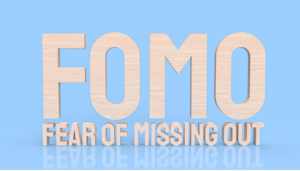
The Psychology of Spending: Why We Buy Things We Don’t Need
We’ve all been there—buying something we don’t really need. One minute you’re window-shopping, and the next minute, you’re walking out with bags full of stuff. Ever wonder why that happens? Well, it’s not just about the item you bought; it’s about what’s going on in your head. Understanding the psychology of spending can actually help you make better choices with your money. So, let’s dig into why we sometimes buy things we don’t need and how to become more aware of it.
The Pleasure Principle
You know that good feeling you get when you buy something new? That’s called immediate gratification, and it’s a powerful force. It’s that little voice in your head saying, “I want this, and I want it now!” And when you give in, your brain actually releases dopamine, a feel-good chemical that makes the experience enjoyable. But here’s the thing: that feeling is usually short-lived, and it often overlooks the long-term consequences. That’s why it’s so easy to splurge on a fancy meal or a new gadget and forget about saving for things that really matter, like an emergency fund or a down payment on a house. Understanding this impulse can help us think twice before making a purchase, giving us a chance to weigh the short-term pleasure against our long-term goals.
Social Influences on Spending
You might not realize it, but your friends, family, and even social media can have a big impact on how you spend your money. Ever felt the need to go out to a fancy restaurant just because your friends are going? Or maybe you bought an outfit you saw someone wearing on Instagram? It’s not just about wanting nice things; it’s about wanting to fit in or keep up with others. This kind of social pressure can make us spend on things we don’t really need or even want. Recognize the social influences affecting your choices, so you can be more mindful about your spending and stick to buying things that actually add value to your life.
The Role of Marketing

Ever noticed how some ads seem to speak directly to you? That’s no accident. Marketers use clever strategies to tap into our psychological triggers, making us feel like we absolutely need a product. From limited-time offers to buzzwords like “exclusive” or “life-changing,” these tactics are designed to make us act quickly without much thought. Marketing can even make us believe that a product will solve a problem we didn’t know we had! The next time you’re drawn to a product because of an ad, take a moment to think: Do I really need this, or am I just falling for clever marketing?
Retail Therapy: Fact or Fiction?
We’ve all heard the term “retail therapy,” but is there any truth to it? Does shopping actually make us feel better? Well, yes and no. Buying something new can give us a quick mood boost, but it’s usually just a temporary fix. If you’re feeling down or stressed, shopping might seem like a good escape, but the relief is often short-lived. And what happens after the initial excitement wears off? You’re left with an item you may not need and possibly some guilt or regret. So, the next time you’re tempted to indulge in retail therapy, maybe consider other ways to improve your mood that have lasting benefits, like exercise or spending time with loved ones.
The FOMO Effect

Fear Of Missing Out, better known as FOMO, is another big reason we end up spending on things we don’t need. Imagine scrolling through social media and seeing your friends at a high-end vacation spot or wearing the latest fashion trend. It can make you feel like you’re missing out if you don’t join in. Retailers know this and capitalize on it with limited-time offers and flash sales. FOMO can rush us into making hasty decisions that we later regret. The truth is, that missing out on one thing isn’t the end of the world, and there will always be more opportunities. Being aware of FOMO can help you pause and think before making an impulse purchase, allowing you to make more intentional financial decisions.
Habitual Spending
Sometimes we buy things out of habit, without even thinking about it. Maybe it’s that morning coffee from your favorite café or a magazine you pick up at the grocery store checkout. These may seem like small, harmless purchases, but they can add up over time. Before you know it, you’ve spent a considerable amount of money on things that might not be essential. Always re-evaluate your spending patterns and decide if they align with your financial goals.
The “Treat Yourself” Mentality
The phrase “treat yourself” has become a popular mantra, especially on social media. While it’s important to reward yourself occasionally, the line between self-care and overspending can get blurry. The concept of treating yourself often makes us feel justified in making extravagant or unnecessary purchases. But when does it cross the line? The key is moderation and self-reflection. Before splurging on that expensive handbag or tech gadget, consider whether this is a one-time reward or a pattern of behavior that’s contributing to debt or financial strain. Remember, treating yourself doesn’t always have to involve spending money. Sometimes the best rewards are free.
Conclusion
Next time you find yourself reaching for your wallet, take a moment to think: “Do I really need this, or is it just my mind playing tricks on me?”
Are you in multiple debt because you couldn’t resist the urge to spend? Is it because of an emergency or life’s challenges? It doesn’t matter what the reason is, the idea is, you can be debt-free without being judged! Your debt can be reduced by up to 80%, and interest will stop immediately. Call us at (416) 900-2324 to schedule a free consultation with one of our debt experts at EmpireOne Credit. Being debt-free feels good!





